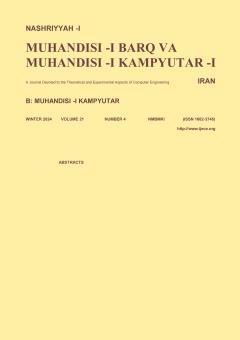Optimization of Initial States for Adiabatic Quantum Computing in a Quantum Algorithm
Subject Areas : electrical and computer engineeringArash Karimkhani 1 , Amir Ghal’e 2
1 - Faculty of Electrical Engineering, Tafresh University, Tafresh 3951879611, Iran
2 - Faculty of Physics, Tafresh University, Tafresh 3951879611, Iran
Keywords: Deutsch’s algorithm, adiabatic quantum computation, quantum computing,
Abstract :
In any adiabatic quantum computation, there exist an initial state that must be used in the corresponding quantum algorithm. In this paper, the relation between an initial state and allowed energy level of an implemented generalized Deutsch’s algorithm is investigated. To study the generalized Deutsch’s algorithm, a compacted form for the output states of the algorithm is obtained. It has been shown that one can prepare the initial states in such a way that control the minimum of energy. By using numerical methods, the minimum values of allowed energy levels for the initial state are obtained. Also, to study the dynamics of the system is chosen. The corresponding Hamiltonian for the algorithm is obtained and it has been shown that one of the energy levels describes a binding state.
[1] IBM, IBM Quantum Computing, https://www.ibm.com/quantum/
[2] M. A. Nielsen and, I.L. Chuang, Quantum Computation and Quantum Information. Cambridge, University Press, Cambridge, 2000.
[3] R. Rennie, Oxford Dictionary of Physics, 7rd ed., Oxford University Press, Oxford 2015.
[4] D. Deutsch, "Quantum theory, the Church-Turing principle and the universal quantum computer," Proc. R. Soc. Lond. A., vol. 400, no. 1818, pp. 97-117, 1985.
[5] D. Deutsch and R. Jozsa, "Rapid solution of problems by quantum computation," Proc. R. Soc. Lond. A., vol. 439, no. 1907, pp. 553-558, 1992.
[6] E. Bernstein and U. Vazirani, "Quantum complexity theory," in Proc. of the Twenty-Fifth Annual ACM Symp. on Theory of Computing, STOC’93, pp. 11-20, San Diego, CA, USA, 16-18 May 1993.
[7] E. Bernstein and U. Vazirani" Quantum complexity theory," SIAM J. Comput., vol. 26, no. 5, pp.1411-1473, 1997.
[8] D. R. Simon, " On The Power of Quantum Computation;" in Proc. of the 35th IEEE Annual Symp. on Foundations of Computer Science, pp. 116-123 Symposium, Santa Fe, NM, USA, 20-22 Nov. 1994.
[9] K. Nagata and T. Nakamura, "Some theoritically organized algorithm for quantum computer" Int. J. Theor. Phys., vol. 59, no. 2, pp. 611-621, 2020.
[10] K. Nagata and T. Nakamura, "Generalization of Deutsch’s algorithm" Int. J. Theor. Phys., vol. 59, no. 8, pp. 2557-2661, 2020.
[11] P. W. Shor,"Algorithms for quantum computations: Discreate log and factoring," Proc. of the 35th IEEE Annual Symp. on Foundations of Computer Science, pp. 124-134, Santa Fe, NM, USA, 20-22 Nov. 1994.
[12] E. Farhi, J. Goldstone, S. Gutmann, and M. Sipser, Quantum Computation by Adiabatic Evolution, arXive: quant-ph/001106.
[13] A. M. Child, E. Farhi, and J. Preskill, "Robustness of adiabatic quantum computation," Phys. Rev. A, vol. 65, no. 1, pp. 0123220-01232210, Jan. 2002.
[14] S. Das, R. Kobes, and G. Kunstatter, "Adiabatic quantum computation and Deutsch’s algorithm" Phys. Rev. A, vol. 65, no. 6, pp.0623100-0623107, Jun. 2002.
[15] T. Albash and D. A. Lidar "Adiabatic quantum computation", Rev. Mod. Phys., vol. 90, no. 1, pp. 0150020-0150035, Jan./Mar. 2018.


